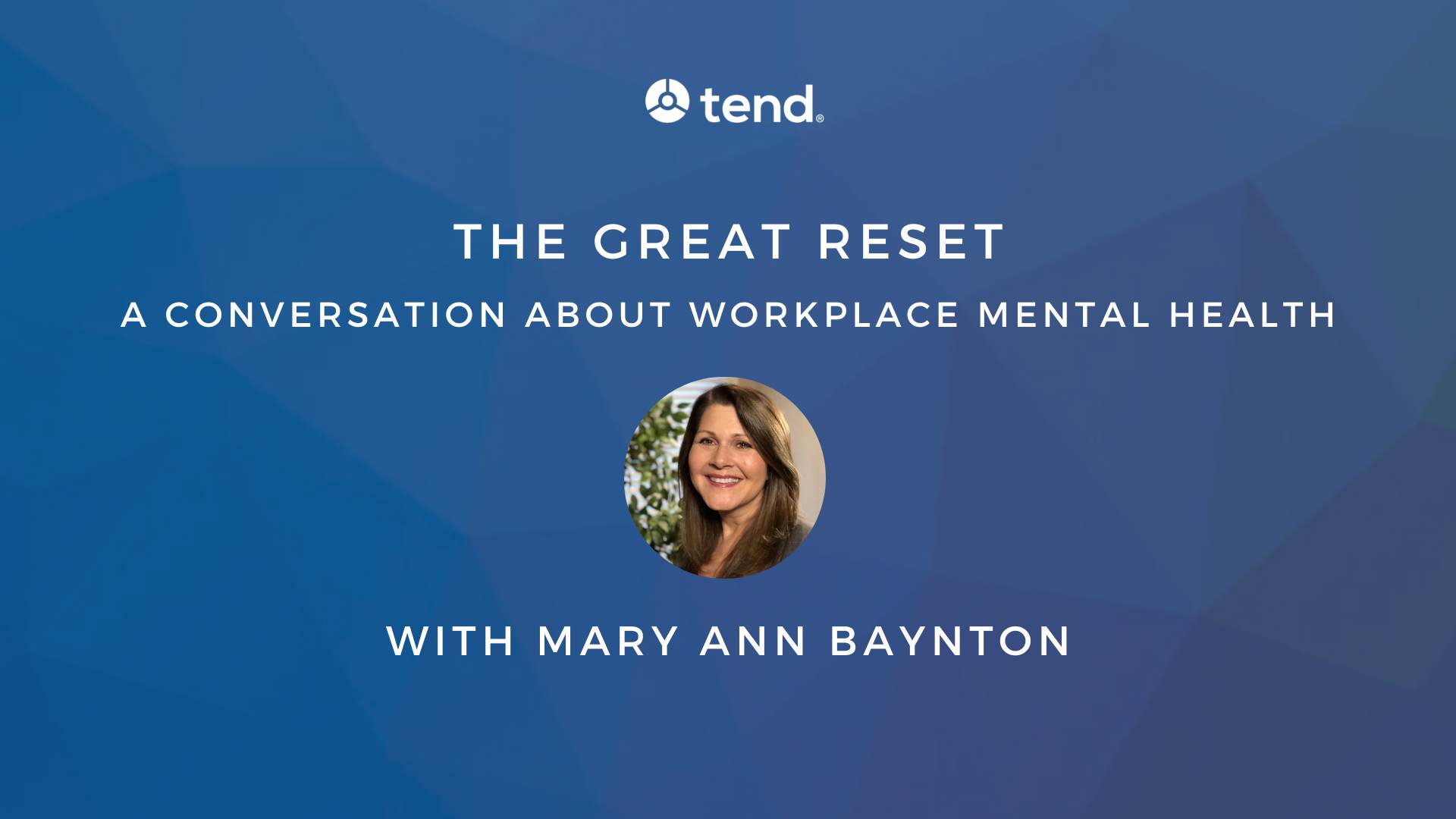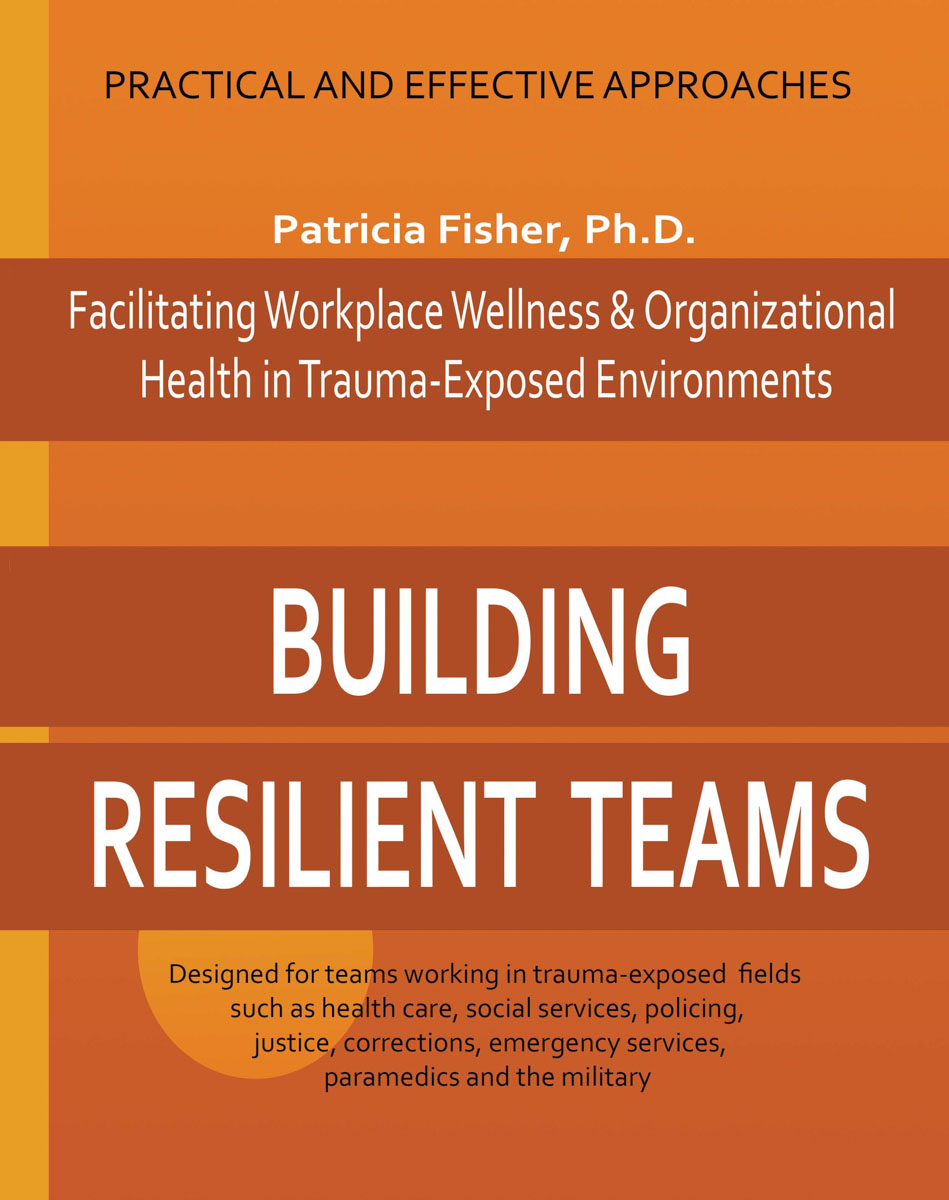Leaders Are People Too
Leaders Are People Too
Dr. Patricia Fisher, co-founder and Senior Advisor with TEND, is a clinical psychologist and specialist in organizational health and workplace wellness in trauma-exposed workplaces. In this interview, Dr. Fisher shares best practice recommendations for leaders amidst the stress of the COVID-19 pandemic.
Q Dr. Fisher, you have been an expert in organizational health for many years, with a particular focus on professionals who work in health care, corrections, law enforcement and social services. How did you become interested in working with high stress, trauma-exposed professionals?
Like many of us in this field, I had intense personal experience as a clinical psychologist working with high-stress, high-trauma client groups within highly challenged systems and institutions (e.g. mental health, social services, justice system, etc.).
And this is going back to the late 70’s, before we had much language or knowledge around the effects of this kind of work on individuals and systems.
By the late 80’s and early 90’s, we had a much better handle on trauma as it pertained to victims – but we were starting to see serious challenges arising for the frontline trauma workers and their organizations. At the same time, it was becoming clear that frontline workers were providing critical, life-changing services to the client groups.
So, we had a double bind: there was a growing need for services but at the same time, the workforce and their organizations were losing capacity and, in a sense, victimizing their workers.
Fortunately, pioneering work by Pearlman, Saakvitne, Finklehor and others was looking at the impact of trauma work on practitioners and starting to propose ways of addressing it. In the mid-90’s, I began to look at the risk and resilience factors at play for practitioners working in trauma-exposed environments within highly pressured and constrained organizations. This was the basis of my Complex Stress Model as well as the research, trainings and interventions that were built on it.
Trauma-exposed workers and their organizations provide services that are vital for a civil society. It is imperative that we support those individuals and their systems.
Q In your opinion, how important is leadership during this complex and rapidly evolving situation that we are in currently?
Leadership is so important under “normal” circumstances. Under the current situation it becomes critical and central.
It’s important to remember too, that we need to include both formal and informal leaders in our thinking. In these tumultuous times, many frontline individuals will be called upon to take on acting leadership roles in addition to their peer leadership roles.
Q I have often heard you say that “leaders are people too.” Would you mind expanding a bit for our readers what you mean by that?
Leaders are often perceived as being exempt from complex stress and their consequences at the personal and professional levels. However, we often find that leaders are some of the most stressed people in organizations.
The pressures on leaders can be so intense at the best of times with everything coming down on them from on top in addition to the responsibilities coming up from those they supervise. In the current situation, these pressures will only amplify, and leaders are even more at risk for developing stress and trauma-related effects.
Q I would like to talk a bit about the basics of staying well as a helping professional during these high stress times. You wrote a wonderful book called Resilience, Balance and Meaning – can you tell our readers about the focus of the book and why that might be more important than ever right now?
The workbook is designed as a practical, comprehensive resource to support all those in trauma-exposed work. Based on current research and best practices, it provides an understanding and action plan throughout the three sections:
The first section provides an introduction and orientation to the issues of workplace stress in trauma-exposed environments – what it is, how it works, what helps and what effects it has. The second section provides self-assessment tools that help to determine your current risk and resiliency profile, self-care status, and stress symptom profile. And the final section provides support to build a personal wellness plans for both your personal life and your work life.
Under “normal” conditions we often believe we can limp along without taking ourselves seriously – and that can seem to work for a while. However, with the current surge in stressors, we really must take informed and effective action to care for ourselves and our colleagues.
Q What are your top recommendations for leaders in health care and first responders at this time?
Here are my recommendations:
- Set your realistic priorities on a daily basis and recognize what you have achieved each day.
- Take the time to ground yourself as you finish one task and before you take on the next task e.g., take a deep breath, Feet on Floor
- Stay connected with your colleagues in a kind and caring way and appreciate each other and your successes together.
- Remember to take care of your body: hydrate frequently, make sure you have quick healthy meals and snacks, sleep as much as you can.
- Unplug from a steady diet of news, rumours and externally imposed anxieties. Focus on what you have some control over.
Q In your book Building Resilient Teams, you talk about Stephen Covey’s circles of control and influence. I was thinking that this is a very relevant concept right now. What are your thoughts about how Covey’s circles may be a useful tool right now?
For readers who may not be familiar with this model, Covey identifies three zones of control:
The smallest part includes things over which we have complete control; the next zone are things we have influence over; and the last and largest zone are things that we have no control or influence.
As you think about looking after your own wellness, it is important to be clear about what you do and do not have control over.
When we are faced with situations in the workplace (or in life) that are unpleasant and/or stressful we have four choices:
- We can accept it
- We can change it
- We can change the way we deal with it
- We can escape from it.
When we are dealing with circumstances outside of our control, such as the current pandemic, we need to focus on the healthiest and most adaptive approaches – either with acceptance and self-care, by changing the way we deal with it, or escape from it.
It is extremely stressful to feel as though you have no control over the events and circumstances in your life, and your experience of them – and this is why it is so important to understand where you sit in the zone of control for the different issues you are facing right now. We need to recognize that we always have a place to find a sense of control – either over the situation or over how we choose to deal with it.
Q Finally, what is one message you would like to share with our readers, whether they are frontline workers, managers or senior leaders as we navigate through this unprecedented situation?
I believe we all need to keep coming back to principles of kindness – to ourselves, our families, our colleagues and our clients.
This pandemic calls on us to change the traditional helper belief paradigm from: “Either I take care of you OR I take care of me” – to – “I MUST take care of me so that I can take care of you.”
Key Takeaways:
- We need to support trauma-exposed workers and their organizations as they provide vital services.
- Leadership during times of crisis is critical and central.
- Include both formal and informal leaders: frontline individuals will be called upon to take on acting leadership roles.
- Leaders are often some of the most stressed people in organizations.
- During this pandemic, pressures will amplify and leaders are even more at risk for developing stress and trauma-related effects
- Focus on the healthiest and most adaptive approaches when dealing with circumstances outside of your control.
- Keep coming back to principles of kindness – to ourselves, our families, our colleagues and our clients.
Concrete steps to take right now:
- Set realistic priorities on a daily basis and recognize what you have achieved each day
- Take time to ground yourself as you finish one task and before you take on the next task e.g., deep breath, “Feet on Floor”
- Stay connected with your colleagues in a kind and caring way and appreciate each other and your successes together
- Take care of your body: hydrate frequently, make sure you have quick healthy meals and snacks, sleep as much as you can.
- Focus on what you have control over: unplug from a steady diet of news, rumours and externally imposed anxieties.




